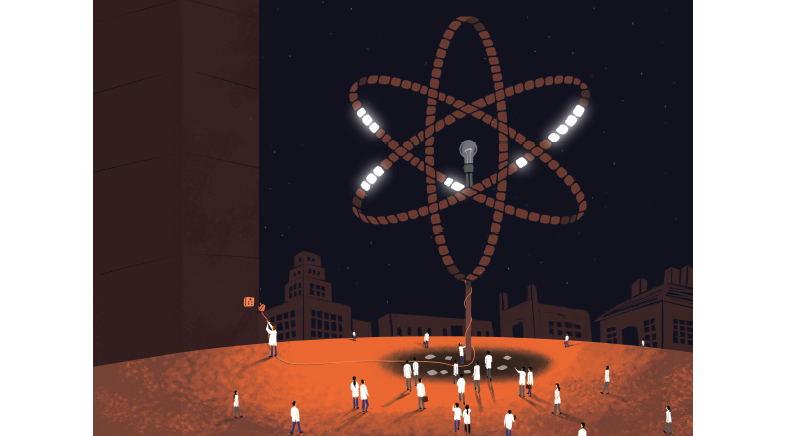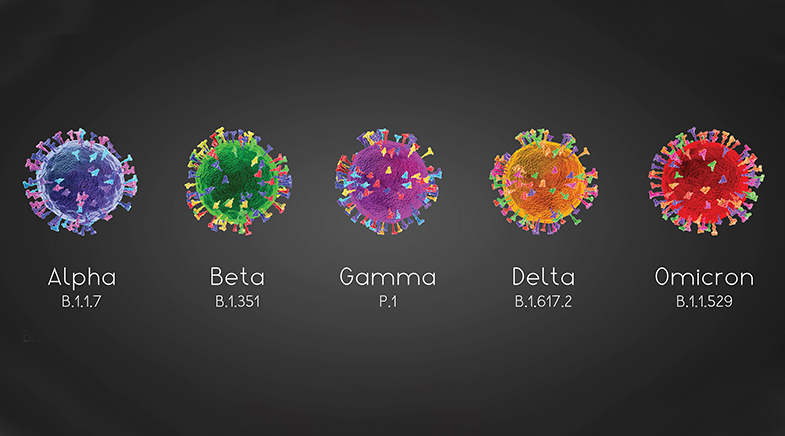Remembering Srinivasa Sourirajan, the 'father of reverse osmosis'
-
- from Shaastra :: vol 03 issue 02 :: Mar 2024

Dr Srinivasa Sourirajan co-invented the life-saving reverse osmosis water purification process.
Millions of homes around the world rely on reverse osmosis, a water purification process, for their drinking water needs. The process, which runs on the membrane separation principle and is also harnessed for the desalination of seawater, is a life-saver – to the extent that it provides access to safe, potable and relatively low-cost drinking water to billions of people. This transformative chemical process engineering technology owes much to two pioneering engineers – Srinivasa Sourirajan and Sidney Loeb – who co-invented and patented the process in 1964.
Born in 1923, Sourirajan hailed from rural Tamil Nadu, and was among the first generation of Indians to receive a PhD, in chemistry. His research credentials earned him a passage to Yale University, where he received a second doctorate – in chemical engineering. Joining the Department of Engineering at UCLA, Sourirajan was guided to begin research work on the Gibbs Adsorption Equation, which gives an estimate of the extent of adsorption at a liquid surface based on surface tension data. Sourirajan's stint at UCLA coincided with Loeb's, and the two collaborated on research on commercial ultrafiltration membranes – which eventually led to their patent.
Elusive Nobel

For their invention, Srinivasa Sourirajan and Sidney Loeb received several awards. They were also nominated thrice for the Nobel Prize, but never got it. Given the significance of their invention, scientists felt dismayed by this. Menachem Elimelech at Yale University said the two engineers should have received two Nobels — "one for Science and one for Peace".
The principle that governed the reverse osmosis process was fairly simple. As Sourirajan and Loeb described it, "the salt water is pushed against… a film membrane by the application of hydraulic pressure." Under these conditions, the water escaping through the film was considerably enhanced in fresh water, they recorded.
The application of reverse osmosis "will always be one of tremendous engineering, economic and social significance," he noted.
Sourirajan and Loeb's patent application (bit.ly/souri-loeb-patent) noted that while their invention had great utility for the specific purpose of demineralisation of saline waters, it had broader application as well. It "may find application and utilization in the separation of various chemicals where a solute is to be separated from a solution" – in biomedical research, for instance.

In a 1970 monograph Reverse Osmosis, Sourirajan introduced the reverse osmosis process as a general separation technique "applicable for the separation, concentration, and fractionation of inorganic or organic substances in aqueous or nonaqueous solutions in the liquid or the gaseous phase."
Sourirajan also flagged the significance of the invention. He noted that the major research effort of the reverse osmosis process was in the field of water treatment in general, and saline water conversion in particular. "This application is, and will always be, one of tremendous engineering, economic, and social significance," he wrote.
Access Barrier

The social significance of Sourirajan and Loeb's work is enormous. Yet, large sections remain without access to clean drinking water. The United Nations World Water Development Report 2023 notes that as of 2020, some 2 billion people around the world did not have access to drinking water. An estimated 3.6 billion people lacked access to safely managed sanitation.
Moving to Canada in 1961, Sourirajan began a 25-year stint as a research scientist at the National Research Council. Post-retirement, he founded the Industrial Membrane Research Institute at the University of Ottawa. Later, he established a membrane research laboratory at the National University of Singapore.
Sourirajan passed away in 2022. In its tribute, the journal npj Clean Water called him the "father of reverse osmosis who made a huge impact on our world". His birth centenary year is currently being observed by many institutions in India and around the world. It is a fitting remembrance of a man whose invention touched millions of lives and quenched their thirst.
See also:
Have a
story idea?
Tell us.
Do you have a recent research paper or an idea for a science/technology-themed article that you'd like to tell us about?
GET IN TOUCH














